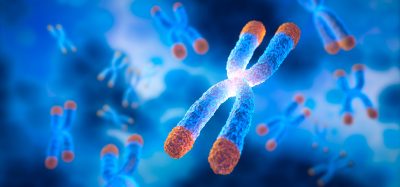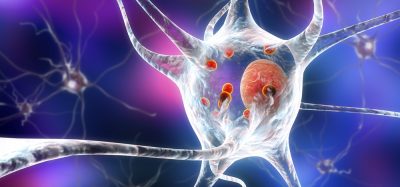Three new genes linked to Alzheimer’s identified
Posted: 24 May 2018 | Drug Target Review | 1 comment
An international research team has identified three new genes linked to the risk of Alzheimer’s disease…


An international research team funded by the Medical Research Council (MRC) and led by scientists at the University of Edinburgh and the University of Queensland, has identified three new genes linked to the risk of Alzheimer’s disease
The researchers combined findings from an existing study of Alzheimer’s genetics, with those from a new analysis involving the children of people with the disease. The findings are set to help researchers better understand the mechanisms underlying Alzheimer’s and could open the door to new approaches for treating the disease.
This innovative research highlights three new genes linked to the risk of Alzheimer’s disease and presents promising leads for future research
To find genetic risk factors for diseases like Alzheimer’s, researchers generally compare the DNA code of people with and without the disease. By carefully analysing data from very large groups of people, researchers can pick out gene variations that are more common in people who have Alzheimer’s. This approach has helped to find around 30 genes that are associated with Alzheimer’s risk.
The more participants in these genetic studies, the more powerful they are and the more they can reveal about the genetics of Alzheimer’s and other diseases. Large-scale research resources like UK Biobank hold rich genetic and medical information about hundreds of thousands of research volunteers, but as only a fraction of this data comes from people with Alzheimer’s, relatively few people can be included in the genetic studies.
In this new study, researchers used a technique that allowed them to cast their nets more widely and include many more people in their genetic analysis. The research involved genetic information from over 300,000 people from the UK Biobank. As most of the participants were too young to be diagnosed with Alzheimer’s, the research team looked to medical information about their parents, many of whom had developed the disease.
On average, children share 50% of their genes with each of their parents. While at the individual level having a parent with Alzheimer’s doesn’t mean you are at a much greater risk of the disease, by combining data from many thousands of people whose parents developed Alzheimer’s the researchers were able to sift out genetic information relevant to the disease.
The team combined results from their new analysis with data from an existing genetic study involving 70,000 people with and without Alzheimer’s disease. The findings highlight three new genes that may play a role in Alzheimer’s risk.
Dr Riccardo Marioni, from the University of Edinburgh, said: “New genetic discoveries can provide vital clues to the biological processes involved in Alzheimer’s, but our genetic makeup is not the only factor that affects our risk of the disease. We are now working to combine genetic data and information about people’s lifestyle to produce more comprehensive and personalised picture of Alzheimer’s risk. Understanding how genetic and lifestyle factors interact to affect our overall risk could lead to more targeted risk reduction strategies and pave the way to precision medicine in Alzheimer’s disease.”
Dr Sara Imarisio, Head of Research at Alzheimer’s Research UK, said: “This innovative research highlights three new genes linked to the risk of Alzheimer’s disease and presents promising leads for future research. The next step will be for molecular scientists to assess how these genes might contribute to the development of Alzheimer’s and fit in to the existing picture of the disease. Interestingly, two of these genes are targeted by drugs that are used to treat other conditions, signalling a potential direction for research into new Alzheimer’s treatments.”
Dr Catherine Moody, programme manager for dementia initiatives at the MRC, said: “These are interesting findings which demonstrate the usefulness of large-scale, data-rich cohorts such as UK Biobank even where, as in this case, the researchers relied on participants’ own reports of their parents’ medical history. The new genes that the researchers identified implicate biological pathways that are thought to be associated with Alzheimer’s Disease neuropathology, opening the way for investigations to uncover the underlying biological mechanisms and beyond this, drug targets.”
This research was also funded by Biotechnology and Biological Sciences Research Council opens in new window(BBSRC) and Alzheimer’s Research UK.
The study, which also involved researchers from the Icahn School of Medicine at Mount Sinai, is published in the journal Nature Translational Psychiatry
Related topics
Disease Research, Genomics, Neurosciences
Related conditions
Alzheimer's
Related organisations
Alzheimer’s Research UK, Edinburgh University, Icahn School of Medicine at Mount Sinai., Medical Research Council (MRC), Queensland University, UK Biobank
Related people
Dr Catherine Moody, Dr Riccardo Marioni, Dr Sara Imarisio








The article comes from a number of reputable Internationally based research sources.
It is still early days, but will be interesting to see if the outcomes are primarily
directed at developing new medications targeting the condition or whether at the cure
itself.